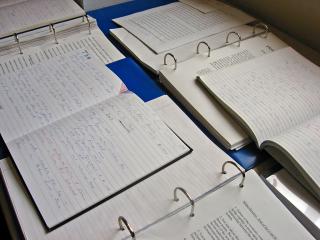The international law has been written, and nobody who took the course can possibly complain about its content. Indeed, it was astonishingly predictable. They snuck on fourteen different possible topics, and I am pretty sure every one of them was either on a previous exam or taken directly from our reading list. As such, the main problem in each answer was effectively summarizing everything you knew about it, rather than wracking your brain in search of anything to write. I wrote on:
- Why have international legal efforts to regulate the global atmospheric environment had such mixed success?
- Is it proper for the World Trade Organization to be concerned with the elimination of economic inequalities within or between states?
- What are the considerations that lead states to comply with provisions on international law?
I only heard after the exam that the assessors might be less than pleased about me answering a question so closely related to my thesis. If so, there is nothing that can be done for it now. Overlap is also a bit of a concern between the second question I answered on this exam and the second question I answered on yesterday’s theory exam. Clearly, I cannot write about either inequality or the WTO during tomorrow’s developing world exam. As such, it is probably go time to brush up on the security issues that exist in the developing world. Just nineteen hours or so away from being finished, now.





